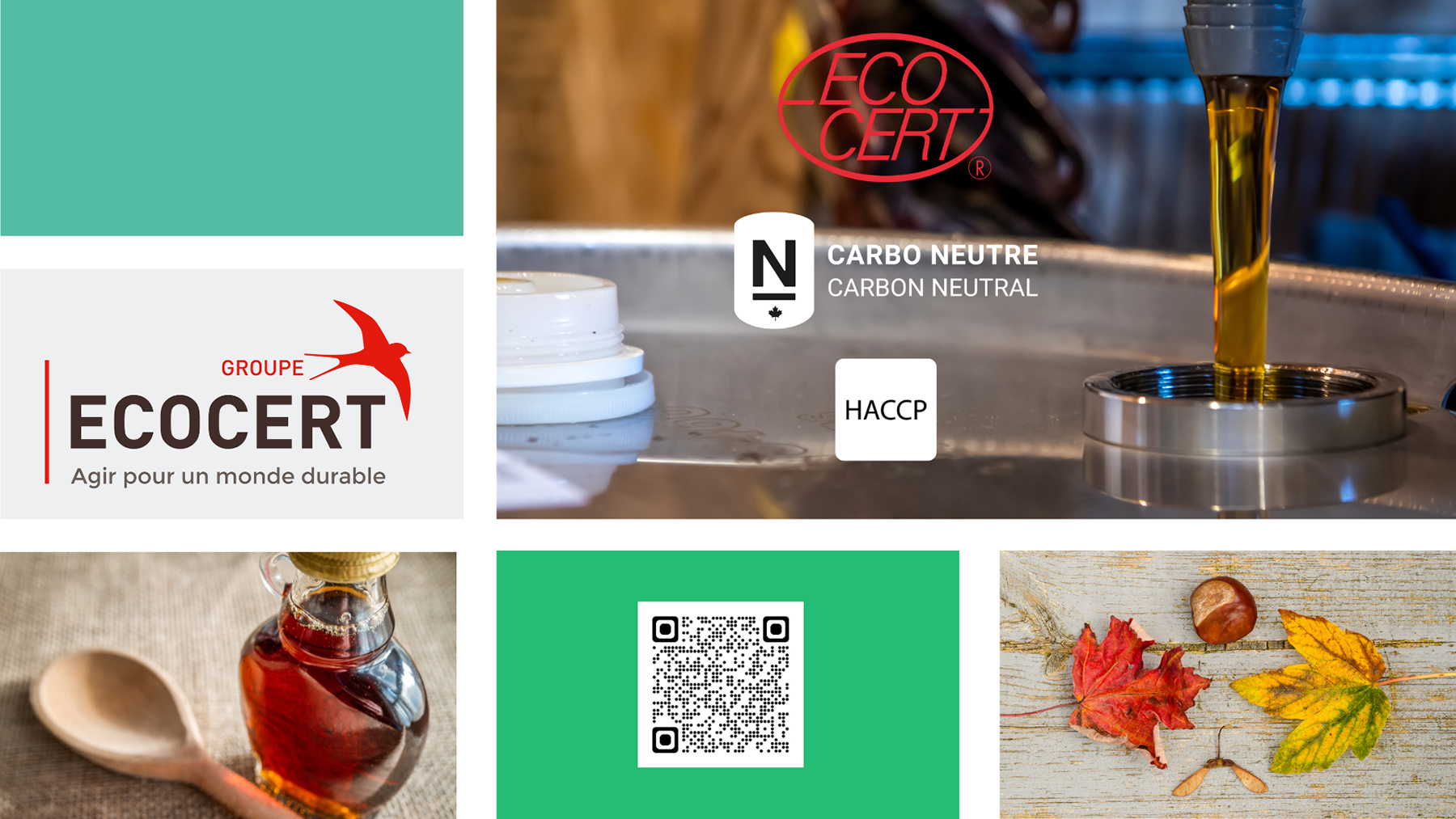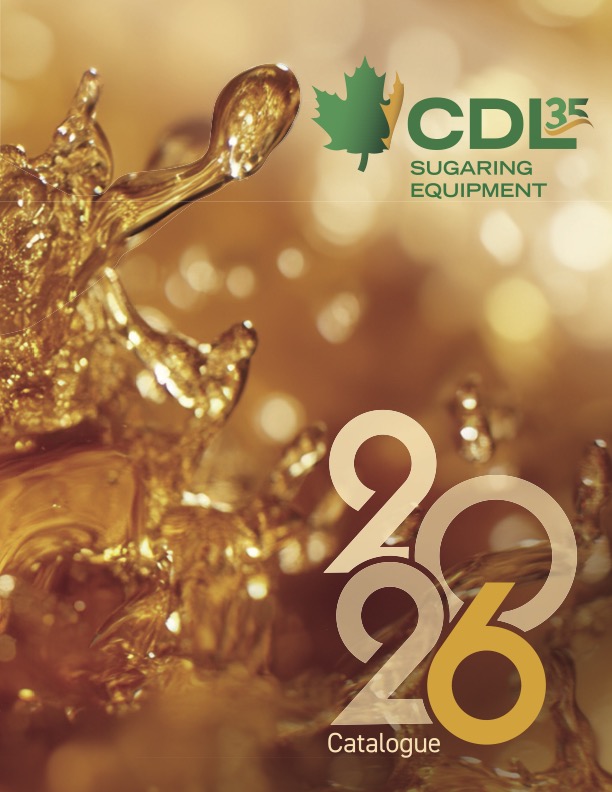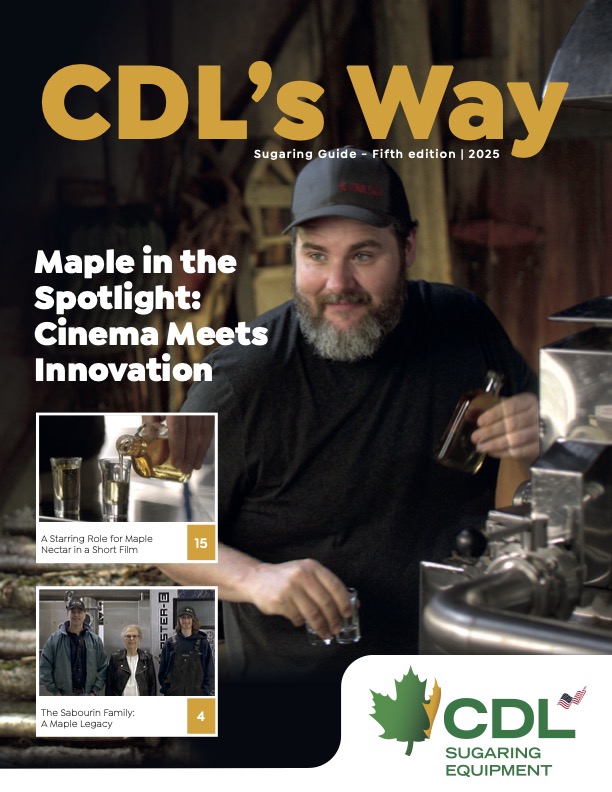How do I get organic, carbon neutral and HACCP certifications?

The maple syrup industry is constantly evolving, and producers are looking for ways to improve their practices while meeting rising consumer expectations. In this article, we will explore Ecocert Canada’s crucial role in organic and carbon neutral certification for maple syrup.
Ecocert Canada: Ensuring Sustainable Practices
Ecocert Group Canada is a globally recognized certification body. Its mission is to promote sustainable agricultural and industrial practices by evaluating and certifying products, systems and services.
For maple syrup production, which is very important in North America, Ecocert Canada, a subsidiary of the Ecocert group, offers certifications that are essential for the development of markets on the continent: organic, carbon neutral and HACCP certification.
Organic certification
Organic certification ensures that maple syrup is produced in accordance with rigorous organic standards. This means:
- Chemical-free and GMO-free: organic growers do not use synthetic pesticides, herbicides or fertilizers;
- Respect for biodiversity: local fauna and flora are preserved;
- Total traceability: from the producer to the consumer’s table, every step is verified.
It is important to know that the certification process takes a little over a year. It begins with an inspection visit to assess the sugar bush’s practices and determine the work that needs to be done. This is followed by a second inspection to verify compliance with the requirements of the program. To ensure that this compliance is maintained over time, annual visits by the certifier are also carried out.
Organic certification requires the use of cleaning products that are permitted for facilities involved in organic production such as ponds, evaporator and concentrator. The use of cleaning products that respect the environment and comply with the requirements of organic certification in maple syrup production is essential. The preservation of the natural elements surrounding the operation and in the immediate vicinity of the facilities are also considered in the certification process.
The practices valued by the certification are based on recognized scientific data and research and aim to ensure the sustainability of the farm. The tapped maples will be selected based on their size, maturity, the number of taps already made on each of them, as well as the depth of these maples. As for biodiversity, we must ensure that it contains a variety of species called “companions” that contribute to the balance of the sugar bush and the maintenance of rich and productive soils. The target quantity of companion gasoline in the sugar bush is set at a minimum of 15% by organic regulations.
Maple syrup producers must be able to attest to the traceability of the product, from its production to the consumer’s table. This exercise requires the collection and processing of a large amount of data. It is an operation that becomes more complex depending on the range of processed products that result from production. Even if the exercise may seem demanding, it requires the producer to ensure a continuous quality of production management and to guarantee the integrity of the products to customers.
Carbon neutral certification
Carbon neutral certification goes beyond organic certification. In the field of maple syrup production, this certification can only be obtained by a company that is already certified organic and also requires an evaporator that does not run on fossil fuels. Certifying the effort to reduce greenhouse gas emissions is a complementary action that reinforces a producer’s sustainable commitment. Here are the key points of this commitment:
- Net zero carbon emissions: producers offset their emissions by investing in greenhouse gas reduction projects;
- Environmental protection: certification encourages sustainable practices to minimize the impact on climate change;
- Transparency for consumers: Products labelled “Certified by Ecocert Group” are clearly labelled.
Benefits for producers and marketing
Incorporating sustainable practices into a business is critical to its long-term success. When a company chooses to have its sustainable practices certified by an independent third party, it enjoys several significant benefits:
Credibility and trust: Certification by an independent third party boosts the company’s credibility. Consumers and business partners trust a company that actively engages in responsible practices. This credibility can open up new business opportunities and boost the company’s reputation.
Transparency and traceability:
Ensures that the company adheres to strict standards. Processes and products are evaluated in an unbiased manner, which provides full transparency. This gives customers peace of mind that the company is following sustainable practices.
Process Improvement: Encourages the company to continuously evaluate and improve its practices. It drives innovation, operational efficiency, and cost reduction.
Access to international markets: Many companies require suppliers to be certified to ensure the sustainability of their supply chain. Certification facilitates access to these international markets and strengthens the company’s competitiveness.
HACCP certification – A complementary offer
Your company’s HACCP (Hazard Analysis Critical Control Point) system is a system that identifies, assesses, and controls food safety hazards. It is considered essential in the management and control of food hazards.
Companies interested in having their HACCP system certified must demonstrate compliance with the requirements outlined in the Canadian Food Inspection Agency’s (CFIA) Food Safety Enhancement Program (FSEP).
For the North American maple syrup industry, the adoption of HACCP certification can offer several benefits.
- It can lead to a reduction in losses caused by product recalls through better internal control of risk situations;
- It can increase employee accountability for food safety;
- It can boost consumer and buyer confidence;
- It can increase employee’s knowledge of food manufacturing;
- It can help maple syrup producers meet the many laws and regulations that govern the sale, marketing, inspection, grading, quality and safety of maple syrup;
- It can also help ensure the authenticity of production methods and the superior quality of products
Conclusion
The Ecocert Group, through Ecocert Canada, plays a vital role in promoting responsible maple syrup production. Organic, carbon neutral and food safety certifications are assets for producers and strengthen the quality of North American maple syrup in the face of increasing competition and requirements in global markets.
To find out more about the Ecocert Group’s certifications, visit our official website www.ecocert.com. Together, let’s build a sustainable future for our precious maple!


